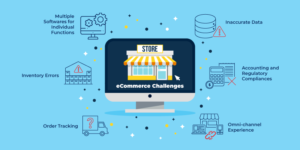Introduction
Digital marketing jobs cover a wide range of responsibilities that involve promoting products, services, or brands through online media. In today’s interconnected world, businesses use digital channels to reach their target customers and increase engagement. Local internet marketing, a subtype of digital marketing, focuses on audiences within a specific geographical region. Here’s an overview of both digital marketing careers and local internet marketing: Welcome to a comprehensive exploration of Smart Tech Choices: Empowering Your Small Business for the Future.
cover a wide range of responsibilities that involve promoting products, services, or brands through online media. In today’s interconnected world, businesses use digital channels to reach their target customers and increase engagement. Local internet marketing, a subtype of digital marketing, focuses on audiences within a specific geographical region. Here’s an overview of both digital marketing careers and local internet marketing: Welcome to a comprehensive exploration of “Smart Tech Choices: Empowering Your Small Business for the Future.”
This article serves as a roadmap for small business owners, guiding them through the process of selecting, implementing, digital marketing jobs and optimizing technology solutions.
From leveraging automation for efficiency to ensuring the security of valuable data, join us as we unveil the key considerations and best practices that empower small businesses to thrive in an ever-evolving digital landscape.
Cloud Computing:
Embrace cloud-based solutions to streamline operations and reduce costs.
Benefit from improved accessibility, collaboration, and data security
Utilize cloud storage, project management tools, and software-as-a-service (SaaS) applications.
Digital marketing jobs:
Leverage digital marketing platforms to reach a wider audience.
Utilize social media management tools, digital marketing jobs, email marketing software, and analytics tools to refine your digital marketing jobs and strategies.
Implement search engine optimization (SEO) techniques to enhance online visibility.
E-commerce Integration:

Establish an online presence with a user-friendly e-commerce platform.
Integrate secure payment gateways for seamless transactions.
Leverage data analytics to understand customer behavior and preferences.
Automation and AI:
Automate repetitive tasks to free up time for more strategic activities.
Implement AI-driven solutions for data analysis, customer support, and personalized experiences.
Explore chatbots and virtual assistants to enhance customer interactions.
Cybersecurity Measures:
Prioritize cybersecurity to protect sensitive business and customer data.
Invest in robust antivirus software, firewalls, and regular security audits.
Educate your team on best practices for online security to mitigate potential threats.
Remote Collaboration Tools:
Facilitate remote work with collaborative tools and video conferencing platforms.
Foster seamless communication and project management for distributed teams.
Consider digital project management tools for task organization and progress tracking.
Customer Relationship Management (CRM) Systems:
Implement a CRM system to manage customer interactions and improve relationships.
Use data analytics within the CRM to personalize customer experiences.
Enhance customer satisfaction through effective communication and personalized offerings.
Data Analytics and Business Intelligence:
Harness the power of data analytics to make informed business decisions.
Implement business intelligence tools for real-time insights.
Utilize data to identify trends, optimize processes, and stay ahead of market changes.
Training and Skill Development:
Invest in training programs to ensure your team is adept at using new technologies.
Stay updated on industry trends and encourage continuous learning.
Foster a tech-savvy culture within your organization.
Scalable Infrastructure:
Choose scalable technologies that can grow with your business.
Plan for future technological advancements and ensure your infrastructure can adapt.
Regularly reassess your tech stack to align with business goals.
By making smart tech choices in these areas, your small business can not only stay competitive but also position itself as a forward-thinking and adaptable player in the ever-changing business landscape. Embrace technology as a catalyst for growth, innovation, and sustained success.
Social Responsibility through Technology:
Use technology to enhance your business’s social responsibility efforts.
Implement eco-friendly practices through digital documentation and reduced paper usage.
Leverage technology to support community initiatives, fostering a positive brand image.
Mobile Optimization:
Ensure your online presence is optimized for mobile devices.
Develop a mobile-friendly website and consider creating a dedicated mobile app.
Capitalize on the prevalence of mobile usage for marketing and sales strategies.
Supply Chain Optimization:
Integrate technology to optimize your supply chain processes.
Implement tracking systems for inventory management and order fulfillment.
Utilize data analytics to forecast demand and streamline procurement.
Augmented Reality (AR) and Virtual Reality (VR):
Explore AR and VR applications to enhance customer engagement.
Implement virtual try-on experiences for products or virtual tours of your business.
Capitalize on these immersive technologies for marketing and sales initiatives.
Subscription Services and Recurring Revenue Models:
Consider incorporating subscription-based services for a steady revenue stream.
Use technology to manage subscriptions, billing, and customer retention.
Tailor products or services to meet the evolving needs of your subscription base.
Blockchain Technology:
Explore the potential of blockchain for secure and transparent transactions.
Consider incorporating blockchain for supply chain transparency or secure financial transactions.
Stay informed about industry-specific applications of blockchain relevant to your business.
Employee Well-being Tech:
Prioritize employee well-being by incorporating wellness technology.
Implement tools for mental health support, flexible scheduling, and remote work facilitation.
Foster a healthy work environment through the use of well-being apps and resources.
Robotic Process Automation (RPA):
Streamline internal processes by integrating RPA for repetitive tasks.
Increase operational efficiency and reduce human error with automated workflows.
Invest in RPA solutions that align with your specific business needs.
Continuous Cybersecurity Training:
Recognize the dynamic nature of cyber threats and invest in ongoing cybersecurity training.
Conduct regular simulations and drills to prepare your team for potential security breaches.
Stay vigilant and update security measures to address emerging risks
Adaptability and Future-Proofing:
Foster a culture of adaptability within your organization.
Stay abreast of emerging technologies and assess their relevance to your business.
Be proactive in adapting your tech strategy to meet evolving market demands.
Conclusion
In conclusion, the smart adoption of technology is pivotal to the success and sustainability of small businesses.
By staying attuned to emerging trends, embracing innovative solutions, and fostering a tech-forward culture, digital marketing jobs improve your business can navigate the challenges of today’s competitive landscape and position itself for a successful future.
Remember, technology is not just a tool; it’s a strategic enabler that can empower your small business to achieve new heights of productivity, efficiency, and customer satisfaction.








